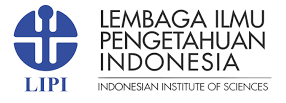Legal Analysis of the Application of Cyber Notary in the Notary Profession in Indonesia
Abstract
This study examines the implementation of the cyber notary concept within the notarial profession in Indonesia, focusing on the associated challenges and opportunities. The research employs a normative legal method with statutory, conceptual, and empirical approaches. The analysis reveals that while the Indonesian legal framework, including the Law on Notary Position (UUJN) and the Electronic Information and Transactions Law (UU ITE), provides a foundational basis for cyber notary practices, significant regulatory gaps and uncertainties remain. Key challenges include the lack of detailed regulations, data security and privacy concerns, and the readiness of technological infrastructure and human resources. Despite these challenges, the potential benefits of cyber notary, such as increased efficiency and business facilitation, are substantial, particularly in the context of the COVID-19 pandemic. The study concludes that comprehensive regulatory development, enhanced training for notaries, and robust data security measures are essential for the effective implementation of cyber notary in Indonesia. This research contributes to the discourse on digital transformation in legal services and offers policy recommendations to support the adoption of cyber notary practices




1.png)





.png)

.png)







